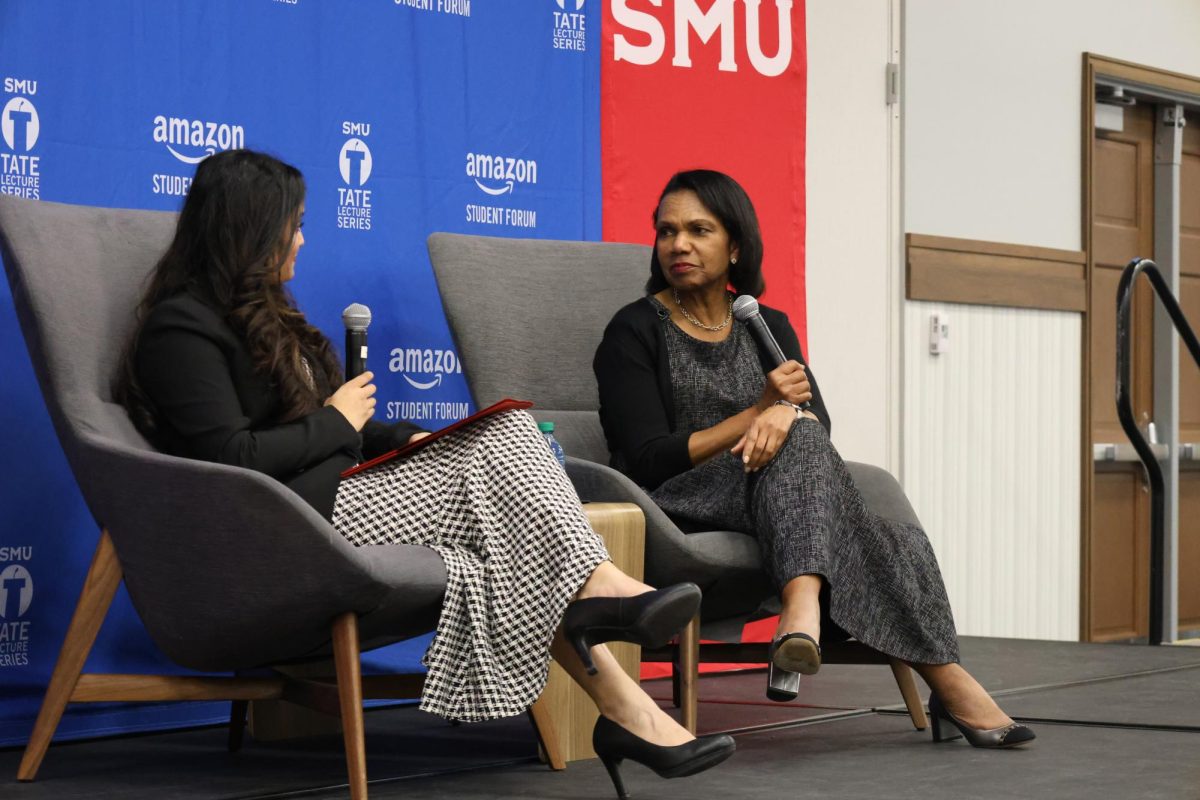Ten years after 9/11 domestic security spending has more than quadrupled, full body scanners have arrived at airports and phones can be tapped without warrants. And even given these new security measures, Gallup indicates 38 percent of Americans believe a terror attack is a likely possibility in the coming weeks.
“The fact is that we don’t know if we are more secure,” said Seyom Brown, SMU professor of political science and the author of “The Illusion of Control: Force and Foreign Policy in the 21st Century.”
Brown said it was difficult to ascertain our level of security because we are largely unaware of the number of threats we face.
Thirty-eight percent is some of the lowest numbers Gallup has seen since conducting the poll 10 years ago, when numbers were as high as 85 percent, the same poll shows a weak sense of confidence in the U.S. government. The percentage saying they have “a great deal of confidence” is now at 22 percent — down from 41 percent immediately after 9/11.
And while lowering numbers seem to indicate less confidence in the Obama administration than the Bush administration, Brown said Obama is doing very little differently that the former president.
“I think that it is too easy to get into a political slug fest on this. Saying that one or another of the administrations made a mess of it,” Brown said. “The truth is that once Obama got into office he began to embrace his national security policies, including surveillance without warrant.”
Brown said the shift indicated that the information given to the public was different from the reality public officials face once in office.
“It’s a completely different reality. Now, I think he is completely, emotionally dedicated to civil liberties and his whole career indicates that, but once he got into office, things were different,” Brown said, mentioning Obama’s history as a constitutional law professor and his advocacy for civil rights.
In an interview with NBC news that aired Saturday, Obama said that 10 years after 9/11 we have emerged in a way that is “consistent with our character.”
“The truth of the matter is that there have been some changes since 9/11. Some innocence, perhaps, has been lost,” he said. “But our core values — our core character, how we interact with each other, our love of this country, and our ability to work through difficult issues in a way that’s peaceful and democratic — those things haven’t changed.”
And while those things may not have changed, it is clear that Americans do not have the same number of civil liberties they once did.
Polls show mixed reviews on whether or not the country has gone too far.
According to a poll by the Associated Press-NORC Center for Public Affairs Research, 86 percent said individual freedoms had been impacted by 9/11 and only 53 percent of people said that increased spending on national security had been worth the cost.
Additionally, a slim majority — 54 percent — said if they had to choose between preserving their rights and freedoms and protecting people from terrorists, they would preserve their rights and freedoms.
Brown said that while he believes Obama truly wants to protect civil liberties, “a great deal more leveling” with the public is necessary.
“Obama has not given an adequate explanation of some of the retreats [on civil liberties] he has made,” Brown said.
“There is a burden on any public official that will violate our traditional civil liberties to explain to the American public why this is necessary.”
Brown then echoed the noted concerns of some of those in the Associated Press-NORC Center for Public Affairs Research poll by saying the downgrade in civil liberties is a tilt towards the future the terrorists wanted.
“Ironically, to the extent that Osama and his cohorts force us to abandon our commitment to civil liberties, they are winning,” he said. “They are making us so scared that we lose our soul, so to speak.”
While Brown said he was personally “ambivalent” about the trade off between civil liberties and security as it stands, he mentioned his personal concern about trading the right to due process in exchange for security.
“Now we are really in a bind, because we really do have some of the most dangerous people sitting in Guantanamo, but because we have already violated their constitutional rights there is no way we can bring them to trial,” he said. “I’m just not sure that giving up due process rights is ever really necessary.”
But Brown said from an administrative viewpoint, it was difficult to find a balance between where to draw the line between violating civil liberties and protecting the American public.
Going forward, Brown said it was difficult to determine how safe we really are, and that the heightened level of security surrounding the 10-year anniversary of 9/11 was reflective of the fact that the government knows our security system is not 100 percent accurate.
“The fact that we were able to, in some cases quite luckily, to catch terror threats, is great, but it’s also difficult to be very optimistic about it because any number of those instances could have been pulled off,” he said, mentioning that the only reason we caught the so called “underwear bomber” was because his father called in his concern.
In any case, Brown said, the American public may never know the extent to which we are safe or unsafe, and it was difficult to know whether it was luck or skill that has kept us safe for the last 10 years.














